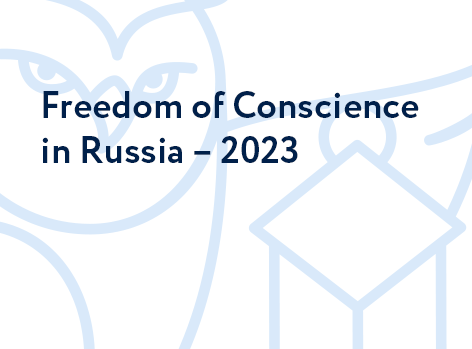SOVA Center for Information and Analysis took part in the 2014 OSCE Human Dimension Implementation Meeting in Warsaw (September 22 – October 3). Here we publish the report made by the center’s speakers at sessions "Fundamental Freedoms II" on October 1, 2014.
Mr. Chairman and distinguished members of the conference!
Our Analytical Center «Sova» conducts monitoring of numerous problems related to the freedom of conscience and religion. Although, we do not focus only on certain religious minorities, we have to confess that the rights of Muslim groups represent a subject for serious concern, if not for all of them, but definitely its considerable part.
1. The anti-extremist legislation and other norms associated with it represent one of the main sources for the problems of the freedom of conscience in Russia. This legislation creates problems for all segments of the society, but first and foremost, for the Muslims. Hereby, we should especially name some peaceful groups, such as the followers of Said Nursi. Other minority groups are also being prosecuted, such as the Jehovah’s witnesses. Here we deal not only with criminal prosecution, but also with utterly massive and unselective prohibition of religious literature.
Last year amendments to the Criminal Code were introduced that criminalized insults to religious feeling. We should admit the existence of similar norms in the legislation of other countries – members of the OSCE. When referring to their experience, we could understand that this legal instrument is not the best one when combating religious hatred. It is simply needless. There are other norms of Criminal Code that describe the presumed crimes. It is no wonder that since around a year ago, when the law came into force, it has never been applied. The conclusion should be as followed: the criminal legislation should not be changed due to the political reasons.
Meanwhile, we should definitely review the legal approaches based on the motives of defending tolerance and security, but are constructed in ways that make it impossible to reach these goals.
2. The so-called "problem of the hijab” has been escalating since the last year. This issue is well known in the OSCE region. But Russia has demonstrated all in one country the consequences of the directive methods of regulating the religious behavior of citizens. In Chechnya, the authorities often force women to wear a headscarf. At the same time, in the neighborhood Stavropol region, some schools forbid girls to wear a headscarf. In multicultural Moscow, the rector of a medical school prohibits female students from wearing both a headscarf, and "ethnic or religious clothing."
We should recognize that prohibitions of any kind in this area not only encroach freedom of conscience, but also lead to social distance of certain groups of Muslims, which becomes a security issue in the future perspective.
In addition, the common area where human rights are respected has been contravened. We are observing it in the example of Russia as well as in Europe as a whole.
3. Building of the churches, mosques and other houses of worship often dissatisfy not only the representatives of some relevant religious groups, but also locals who do not wish to see such construction. Therefore, the questions related to the construction are everywhere and always solved via compromise. However, if there is a clear disproportion between religions, it is always perceived as discrimination, although there has never been an evil intent. For example, two hundred orthodox churches are planning to be built in Moscow. There are some protests, yet still the construction continues. Meanwhile, the situation with the construction of mosques is worse, and there is no sign that the situation will improve. At the same time, the municipal authorities always refer to the dissatisfaction of the local population. Similar situation are indeed being seen in other towns.
We understand that the urban development solutions always invovle a spirit of compromise, however such clearly unequal treatment should be discontinued.
Our recommendations for OSCE participating states
1. Do not use lists of banned literature as an instrument for protecting tolerance, including religious tolerance as this tool has already demonstrated a complete lack of efficiency, and it generates a lot of human rights violations.
2. Accept the fact that religious tolerance should be protected by the same mechanisms as other forms of tolerance, and refrain from creating special rules that restrict certain freedoms for the sake of specifically religious tolerance.
3. Disavow any and all laws that interpret religious polemics as incitement to religious hatred, and to revise the previously adopted solutions reflecting this spirit.
4. Prevent enactment of new laws and other legal acts that are aimed at restriction againt public expression of religious beliefs.
5. Develop an effective mechanism for adopting decisions on the construction of religious buildings.


